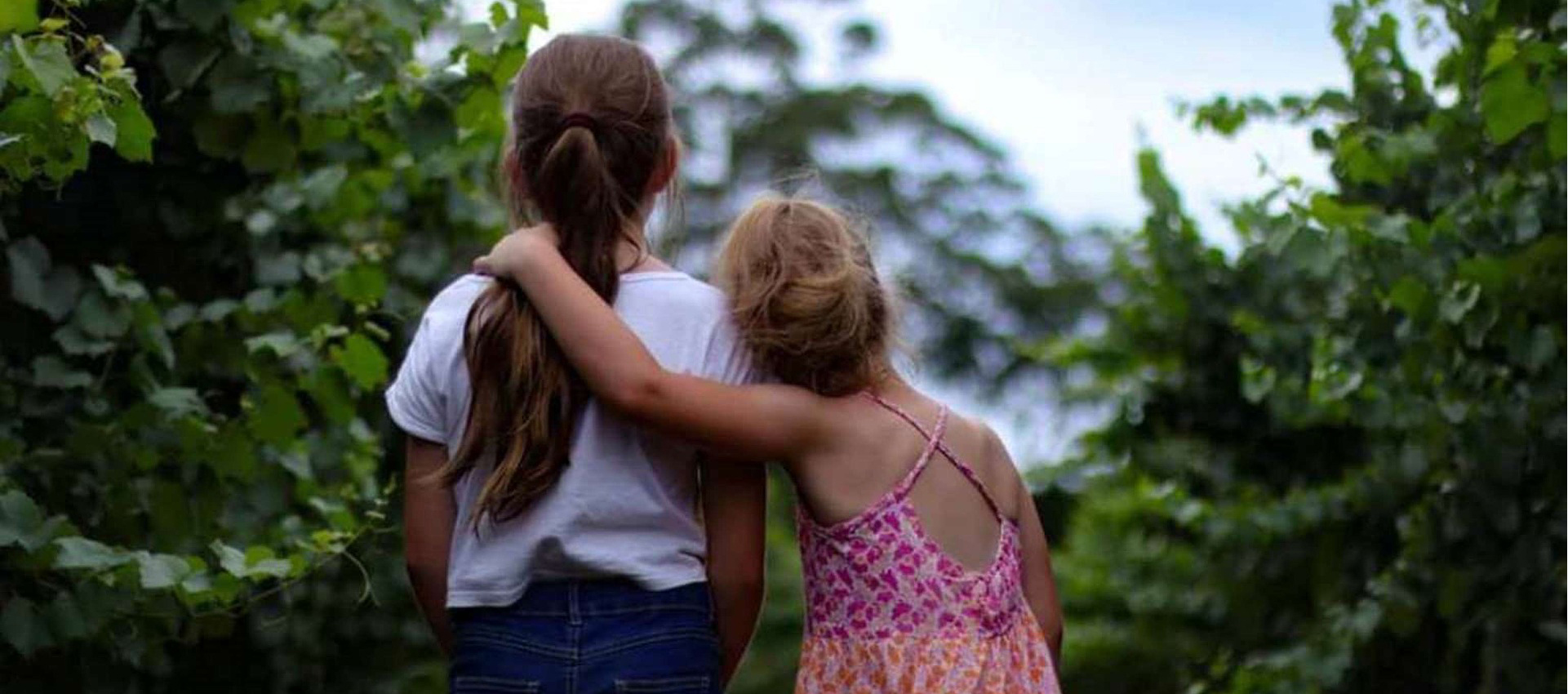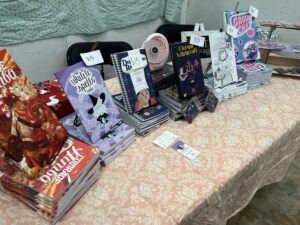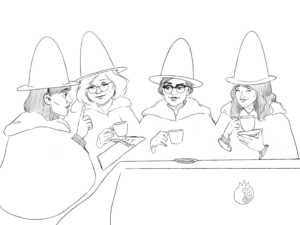Think about that friend you have who is impossible to make plans with.
Nearly every woman I know can tell you about someone in her life who is like this. I have that friend, too. I’ll call her Alice. I’ve known her since college and it has always been difficult to get her to nail down—or stick to—plans. She’s cancelled at the last minute so many times, I don’t even believe that I’m going to see her until she tells me she’s on the way. And, even then, she’s likely to be running an hour late.
Alice also has an odd habit of inviting me to random things that have nothing to do with me, or more accurately, “inserting” me into existing plans. She recently “invited” me to drive to another city to watch her in a morning game with her sports team. Despite knowing me for years, she can’t grasp that sports are just not my thing (and social anxiety is). If Alice were my sister or girlfriend, of course I would be there, but she’s neither of those. Because admitting that I didn’t want to go would have opened up a horrifying can of worms, I lied and said I had brunch plans that day. Simple excuse, right? Wrong. Alice wanted to know what time, where, who else was going, and WHY couldn’t I just reschedule?!
This is typical behavior for her, but something finally clicked for me. In that same conversation, I suggested that we meet up for dinner and Alice ignored me. She wasn’t really interested, I realized, in spending time with me. What she wanted was for me to show up when I could celebrate her. To be a spectator in her life.
But this article isn’t actually about Alice. She’s not even the only “Alice” in my life—just the most consistent one these days. My eureka moment lead me to do some investigation into Narcissistic Personality Disorder—I’m not a psychologist, so I can’t diagnose Alice, but many of the signs rang true for her behavior. What’s more, as I was reading about narcissistic individuals, something else finally “clicked” for me: It dawned on me that I’d actually met my first Alice years earlier, and I’ve carried the aftermath with me my entire life.
I was nine years old when I met a girl I’ll call Sadie.
Sadie wasn’t the most popular girl in fourth grade, nor the most stylish, but she had lots of adoring friends—many more than I did, since I had just transferred schools. And she was cool. She was outgoing and fun, and she owned amazing things like her own boombox and an inflatable chair. From the beginning of our friendship, she was also skilled at boosting my self-esteem. She told me that I was one of the coolest, smartest, funniest girls she knew. Eventually, she also told me (over and over) that I was the best friend she’d ever had. We were going to grow up and become famous actresses together. We were nearly inseparable.
If you’re at all familiar with narcissistic personalities, you likely already recognize exactly what she was doing. This is a textbook case of the beginning of a relationship with a narcissist—the idealization phase, where she made sure I was properly enraptured with her. At the time, I genuinely thought I’d never had such a great friend, either.
She lifted me up, up, up, at a time when I so desperately needed new friends. And, time and again, she ripped it all away.
Out of everything she did, that was the worst. She led me, and many others, to believe that she saw us as special, unique, amazing. She strung us along—it was clear that several other girls were just as impressed by her coolness as I was (but naturally I believed that I was genuinely her one true best friend). And then, inevitably, something would happen. Some tiny thing I did or said would cause the fun, kind Sadie I knew to disappear and leave behind an angry, contemptuous person I barely recognized. “I’m so mad at you,” she would say, unflinching as I wiped away tears. Sometimes, it even escalated to “I don’t want to be friends anymore,” and I would literally beg her to forgive me. I was convinced it was my fault; I had messed up and I just wanted my friend back. Most of the time, we did go back to being friends, but it was a sad shadow of our early relationship after every fallout. “I can’t believe you cried,” she would say with disdain, gaslighting me into believing that what she had put me through was a perfectly normal “fight” between two friends.
Elaborate lies were one of Sadie’s other talents. Many times, she claimed she had met—or was soon going to meet—popular celebrities. She once told me that she had backstage passes to meet our favorite band at a special event, only to change her story at the last minute, saying that her mother had forbid her from going because she was afraid one of the band members would immediately fall in love with Sadie and she wanted to protect her. Even to me as a child, such excuses were obvious exaggerations and lies, but I liked Sadie so much that I wanted to believe her. I liked her so much, I wanted to stay friends no matter what.
I don’t know if Sadie lacked empathy or if she perfectly understood what she was doing and enjoyed it. Of course, we were both just children. I don’t think Sadie recognized her own patterns or deliberately set out to destroy people—I think, in her mind, everything she did was justified. Maybe by telling me again and again that we’d be friends forever, she really hoped she could make it come true.
Eventually, of course, the friendship broke beyond repair, and by the sixth grade, we were barely speaking. I was standing near the bike racks one day after school when she came by, leading a pack of girls behind her. I said hi to her as they passed, and none of them acknowledged me, so I said hi again. Not a single head turned. One of them, a nice girl, ran back to tell me that Sadie had told the group “When Mischa says hi, just roll your eyes,” as they approached me and that she was sorry. I understood why they had listened, though. I was all too familiar with Sadie’s game by that point—at the height of our friendship, she had regularly put down other girls to build me up by comparison, telling me how she used to be friends with them until she realized they were rude/stupid/annoying, completely unlike her and me.
Fortunately, I had made some new friends by that point who I could trust, but the damage was done.
For the rest of my school years, and even into adulthood, I found I had put up a wall between myself and others. By high school, I had such crippling social anxiety that I was mostly a loner, even within my tight-knit electives like varsity choir. I envied people with large circles of friends. What they had seemed unattainable to me.
That’s not to say I never had healthy friendships, of course. But I have to wonder how different I would be today if not for that painful elementary school friendship. The kicker is that I’m convinced I’m still drawn to people like Sadie—when I met Alice as a college freshman, I was excited to have made a new friend so quickly. She was extroverted and engaging, in contrast to my introverted observation, and kind of latched onto me. While our friendship has not followed the same patterns that I experienced with Sadie, it also hasn’t grown into something healthy.
This isn’t how this article is supposed to end, I realize. I’m supposed to give you some reassurance, some pointers on how to avoid getting swept up by potentially narcissistic people, but I can’t. I don’t know how to avoid them, and I know that any time I make a new friend who feels a little too good to be true or repeatedly cancels our plans or ignores my texts, I see a disappointing red flag. I’m still guarding myself, and I’ll probably never stop. I’m one of the few women I know who doesn’t have a “best friend” in my adult life, and I honestly wish so, so much that I did.
My hope is that by highlighting these experiences, I can help others recognize similar patterns in their lives. If anyone you know behaves in ways that signal narcissism, I urge you to do more reading on NPD, and to proceed with caution. I won’t tell you to cut them out of your life, since that’s something I haven’t been able to do, but you can arm yourself with knowledge and recognize that you don’t deserve their treatment.
Featured image source: Pixabay



